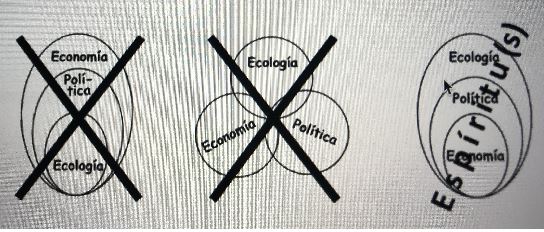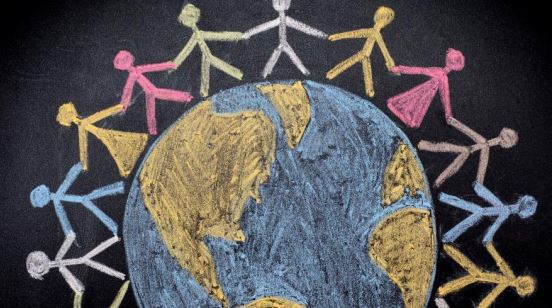Impacts of climate change on human rights
Climate change is and will undermine the enjoyment of some basic human rights. The enjoyment of the highest attainable standard of health is one of the fundamental rights of every human being
Climate change is also affecting the main environmental determinants of health: Water, Food, Shelter, Air
Some of the largest desease burdens are climate sensitive. Each year:
– Undernutrition kills 3.5 million.
– Diarrhoea kills 2.2 million.
– Malaria kills 900,000.
– Extreme weather events kill 60,000.
WHO estimates that the climate change that has occurred since the 1970s already kills over 140,00 per year.
Increases in diseases of poverty may be even more important
Diarrhoea is related to temperature and precipitation. In Lima, Peru, diarrhoea increased 8% for every 1°C temperature increase.
Health impacts are unfairly distributed
WHO estimates of per capita mortality from climate change, 2000
Health as a central principle of the 1992 Rio conference and the UNFCCC:
1992 RIO DECLARATION Article 1: “ Human beings are at the centre of concerns for sustainable development. They are entitled to a healthy and productive life in harmony with nature.”
UNFCCC Article 1: “Adverse effects of climate change” : changes in the physical environment or biota resulting from climate change which have significant deleterious effects on the composition, resilience or productivity of natural and managed ecosystems or on the operation of socio-economic systems or on human health and welfare.
UNFCCC commitment to consider health effects of mitigation and adaptation measures:
UNFCCC Article 4.1 (f): All Parties…shall: …f. Take climate change considerations into account, to the extent feasible, in their relevant social, economic and environmental policies and actions, and employ appropriate methods, for example impact assessments, formulated and determined ationally, with a view to minimizing adverse effects on the economy, on public health and on the quality of the environment, of projects and measures undertaken by them to mitigate or adapt to climate change;
Climate change is rising on the health agenda
– Identified by WHO DG as a top priority, and selected as theme for World Health Day 2008.
– WHA 2008 resolution, Executive Board 2009 endorsement of a new WHO action plan, Regional Committee Resolutions and Frameworks for Action.
– Advocacy and awareness raising, partnerships, evidence and country support.
All led by health sector at the global, regional and national level – and most very recent.
We can save lives and adap to climate change
We have proven, cost-effective interventions, from clean water and sanitation, bednets for vector control, disaster risk reduction, humanitarian aid… All of these deaths are preventable – IF health protection is prioritized, and IF adaptation aid is additional to ODA.
Health reasons for everyone to get up and turn down the heat
– The exercise will do you good.
– Smoking kills you.
– And you shouldn’t be eating that stuff anyway….
Conclusions
•We already know much of what to do: invest now in proven, preventive public health measures, and support healthy development choices
•Human rights, equity and gender principles inform all the work WHO is doing in supporting countries
•The health argument can make an important contribution to environment negotiations. We think health is the entry point to put in practice a human rights-based approach
•Ensure that a human right based approach to CC in all relevant processes (e.g. UNFCCC, Rio+20)




Leave A Comment
You must be logged in to post a comment.